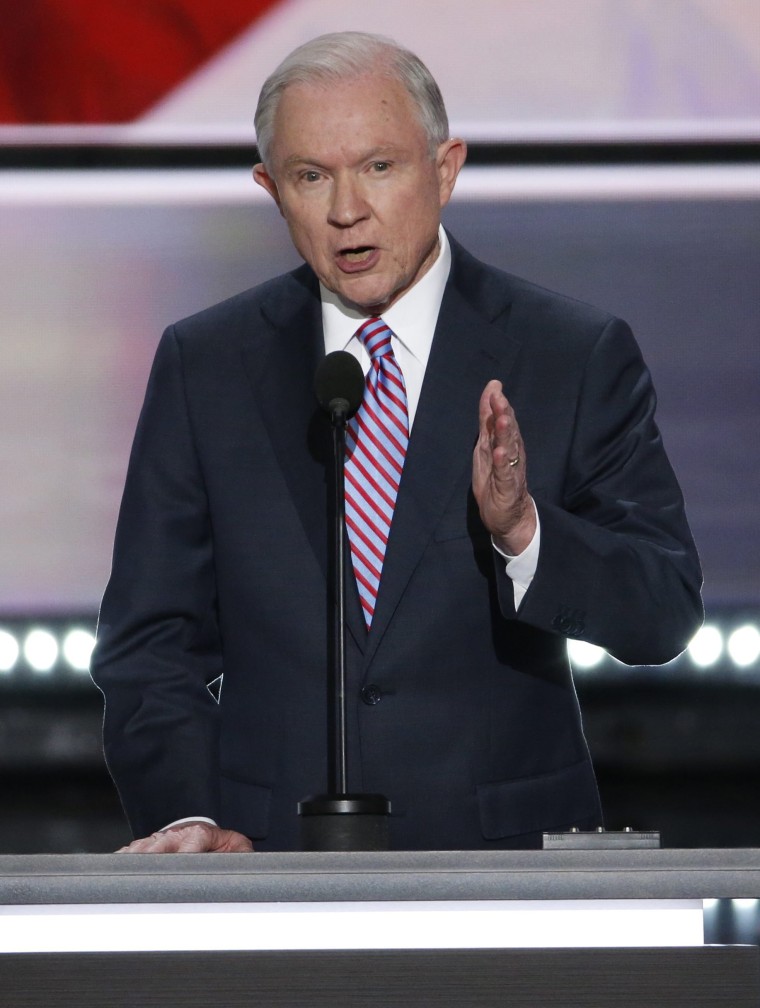The man President-elect Donald Trump has nominated as his attorney general pick is a vocal opponent on issues like same-sex marriage and federal hate-crimes legislation, raising concerns among the lesbian, gay, bisexual, transgender and queer community,
"It is deeply disturbing that Jeff Sessions, who has such clear animus against so many Americans — including the LGBTQ community, women and people of color — could be charged with running the very system of justice designed to protect them," Chad Griffin, president of the Human Rights Campaign, the nation’s largest LGBTQ civil rights organization, said in a statement.
"When Donald Trump was elected, he promised to be president for all Americans, and it is hugely concerning and telling that he would choose a man so consistently opposed to equality as one of his first — and most important — cabinet appointees," Griffin added.
Same-sex marriage
In 2004 and 2006, Sessions, a Republican senator from Alabama, voted in favor of advancing the failed Federal Marriage Amendment, which would have amended the Constitution to define marriage as a union of one man and one woman.
When same-sex marriage finally became the law of the land in 2015, after the 5-4 Obergefell v. Hodges Supreme Court decision, Sessions did not hold back his displeasure.
"I think what this court did was unconstitutional. I don't think they had the power to do what they did. There's nothing in the Constitution that requires such a result, no mention of marriage in the Constitution," Sessions told WKRG in Mobile, Alabama, shortly after the Supreme Court decision.
Hate crimes and discrimination
Same-sex marriage is not the only pro-LGBTQ legislation Sessions has opposed. He voted against the Matthew Shepard and James Byrd Jr. Hate Crimes Prevention Act of 2009, which expanded federal hate-crimes law to include bias-motivated violence based on sexual orientation and gender identity.
He also voted against the repeal of the military’s "don’t ask, don’t tell" policy in 2010, and in 2013 he declined to vote in favor of the federal Employment Non-Discrimination Act (ENDA), which would have protected LGBTQ employees from workplace discrimination.
One bill he does favor is the First Amendment Defense Act (FADA), which was introduced last year.
Many believe the so-called "religious liberty" bill, of which Sessions is a co-sponsor, would open the door to anti-LGBTQ discrimination. FADA seeks to prohibit the federal government from "taking discriminatory action" against a person who believes "in accordance with a religious belief or moral conviction that marriage is or should be recognized as the union of one man and one woman."
Sessions' track record on LGBTQ issues has consistently earned him low marks from the Human Rights Campaign. The group gave him a zero on its Congressional scorecard and gave him a spot on its "Hall of Shame" in 2014, which included just 19 members of Congress.

